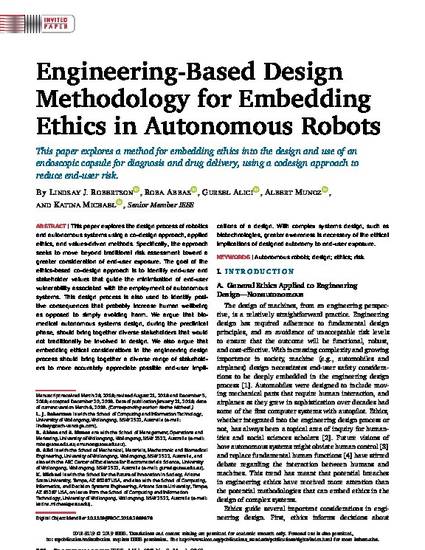
This paper explores the design process of robotics and autonomous systems using a co-design approach, applied ethics, and values-driven methods. Specifically, the approach seeks to move beyond traditional risk assessment toward a greater consideration of end-user exposure. The goal of the ethics-based co-design approach is to identify end-user and stakeholder values that guide the minimization of end-user vulnerability associated with the employment of autonomous systems. This design process is also used to identify positive consequences that probably increase human wellbeing as opposed to simply avoiding harm. We argue that biomedical autonomous systems design, during the preclinical phase, should bring together diverse stakeholders that would not traditionally be involved in design. We also argue that embedding ethical considerations in the engineering design process should bring together a diverse range of stakeholders to more accurately appreciate possible end-user implications of a design. With complex systems design, such as biotechnologies, greater awareness is necessary of the ethical implications of designed autonomy to end-user exposure.
Available at: http://works.bepress.com/kmichael/599/

Robertson, L. J., Abbas, R., Alici, G., Munoz, A. & Michael, K. (2019). Engineering-Based Design Methodology for Embedding Ethics in Autonomous Robots. Proceedings of the IEEE, 107 (3), 582-599.